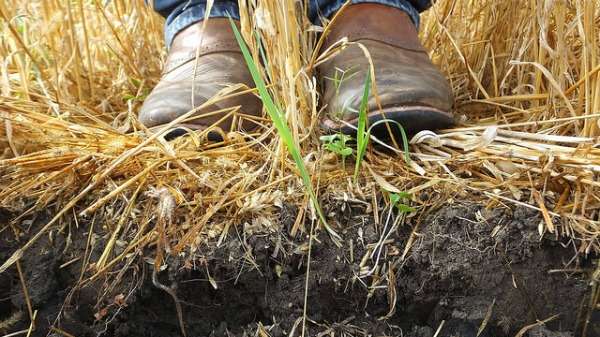State soils library catalogues samples for future science

More than 150,000 soil samples collected over the last 30 years will be brought together this year to form the nucleus of a state soils archive to benefit student learning and agricultural research efforts.
The various samples are the result of decades of research underpinning WA's valuable grain growing industry into soil issues such as salinity, fertility and increased acidity.
To preserve this legacy and enable future research in the field the Department of Food and Agriculture (DAFWA) will move the samples to Muresk Agricultural College at Northam in the Wheatbelt.
Keeping the samples at a single location means they can be kept under the conditions needed to preserve them, DAFWA executive director for grains research and development and plant pathologist Mark Sweetingham says.
"Also by putting them in Muresk we hope that gives greater access to a broader range of future students and members of research organisations, universities, our own department and CSIRO well into the future." Dr Sweetingham says.
"As technology changes we've got better ways to measure some of the parameters of soil, whether they are chemical, biological or physical, than was the case when those samples were first put away."
"Future scientists can [then] perhaps reanalyse soil samples that were taken by their predecessors and check whether they draw the same conclusions from them as were drawn at the time."
Most samples have accurate global positioning tags, so a paddock sampled 20 or 30 years ago can be re-sampled in order to study trends such as pH or nutrient content.
The project has been the product of an evolving "soils alliance" with universities, CSIRO and Natural Resource Management (NRM) groups, crop agronomist and DAFWA director of research and innovation Kerry Regan says.
She says many of the soil samples held by these institutions may also be added to the archive at Muresk.
An aspect of soils research not considered in previous decades was soil microbiology.
Most of the DAFWA samples were not stored with the temperature and humidity controls needed to preserve this, unlike the UWA "Microblitz" collection which is to be DNA analysed, Ms Regan says.
While archiving the existing DAFWA collection is due to start later this year, she says plans are yet to be made to preserve samples relevant to microbiology at Muresk.
The soils archive will use CSIRO's national soil archive in Canberra as an operating model and will work under similar protocols.
Provided by Science Network WA
This article first appeared on ScienceNetwork Western Australia a science news website based at Scitech.




















